Treatment
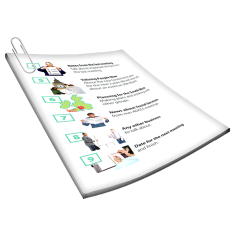
This information is about treatment for mental health.
It has information on

- Making a mental health care plan

- What happens during your treatment

- If you must go to hospital for your mental health

- Where to get more information

After your assessment your mental health worker will discuss what could help you to feel better.

An assessment is when a mental health or disability worker asks you questions about you and your health.
They use this information to work out the best way to help you.
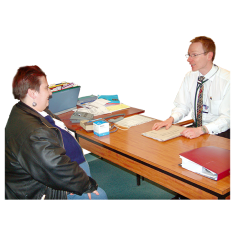
Mental health workers are people who help you with your mental health.
They may suggest treatments.
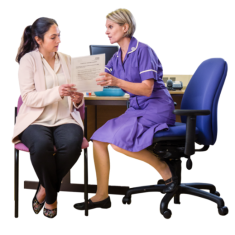
Treatments are things that can help you feel better.
Treatments can be therapies and medicines.

Therapies are activities your mental health workers use to support your mental health.

Medicine is sometimes called medication or drugs.
Medicine can be in
- A tablet
- A pill
- A drink
- An injection

Your mental health worker will discuss making a mental health care plan with you.

A care plan is a list of things you can do to help you get better.
A care plan is sometimes called a treatment plan.

The mental health worker can make your mental health care plan with you.

Someone you trust may work with the mental health worker to make the care plan.

There are many people you might trust.
For more information about who you might trust go to https://www.idmhconnect.health/
someone-trust
Treatments that are available

There are different treatments that can help improve mental health.

Talking therapy is one of the main treatments.
Talking therapy is when you communicate with a mental health worker to learn ways to cope with how you think or feel.

To communicate is how you share and receive information.

To cope means you can deal with difficult things.

Psychologists or counsellors usually use talking therapies to help you.

A psychologist helps you with your mental health by talking with you.
Psychologists help you find things you can do to feel better.
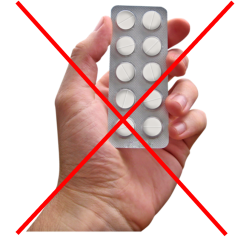
Psychologists do not give you medicine.

A counsellor is a health worker.
You can communicate with them about problems in your life.

You can see a counsellor if
- Stressful things happen in your life
or
- You are worried about the future
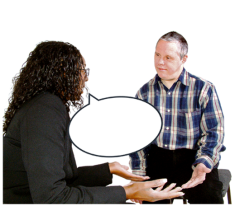
Cognitive Behavioural Therapy is a common talking therapy.
Cognitive Behavioural Therapy is called CBT for short.

CBT can help you change
- How you think
- What you can do to have more positive feelings

For more information about CBT go to https://www.healthdirect.gov.au/
cognitive-behaviour-therapy-cbt

Mindfulness is another common type of talking therapy.
Mindfulness helps you to focus on what is happening now to calm your mind.

For more information about Mindfulness go to https://www.healthdirect.gov.au/
mindfulness

Medicine is the other main type of treatment.
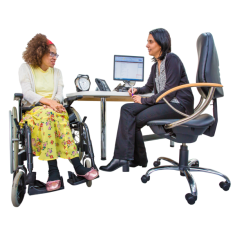
Doctors let people know which medicine to take to help make them better.
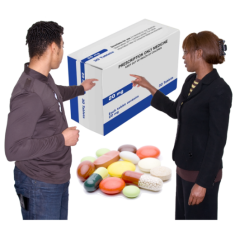
Your doctor may give you a new medicine to take.
If you already take medicine your doctor may change the amount you take.

Your doctor may also tell you to stop taking some medicines.

It is important to keep taking your medicines until your doctor tells you to stop even if you start to feel better.
Your GP or a psychiatrist may manage your medicine.

A GP is the doctor that you see when you
- Are sick
- Need a health check

A psychiatrist is a doctor who helps you with your mental health using talking and medicine.
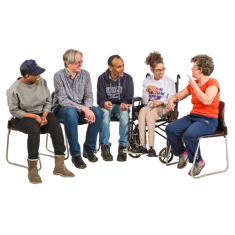
Other things can help mental health such as going to a mental health support group.
A support group is a small group of people you meet with to discuss mental health.

People usually discuss
- How they feel
- Things that make them feel better

For more information about organisations that run support groups
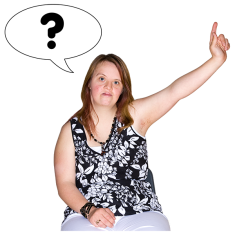
- Ask your GP or mental health worker about support groups in your local area

Other things can help mental health such as having a healthy lifestyle.

For information on other things that can help you to have good mental health go to https://www.idmhconnect.health/tips-good-mental-health/ER
Choosing treatments and consent

You may have more than 1 treatment.

Mental health workers will discuss what treatment is best for you.

Mental health workers will also help you to choose what treatment you want.

Mental health workers will generally ask you if it is OK before they start any treatment.
This is called asking for consent.
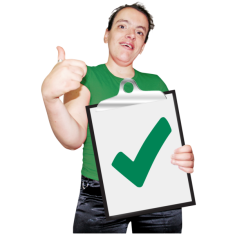
Consent is when you give permission or agree that something is OK.

Mental health workers will go through
- What the treatments will involve

- If the treatments could harm you in any way

- How the treatments may help you
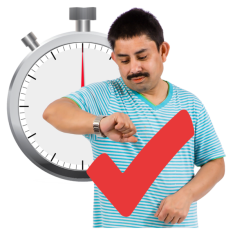
- How long the treatments may take

- If you have to pay any money for the treatment

Sometimes a person responsible needs to make a decision about what treatment is best for you.
A person responsible might be

- A guardian
A guardian is a person who helps you make decisions about parts of your life when you cannot make decisions by yourself.

- Partner
A partner is a person you have a relationship with.
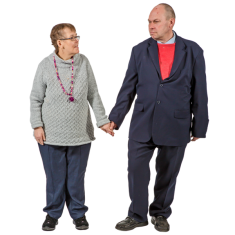
A relationship is a type of connection you have with people you enjoy spending time with.

- Carer
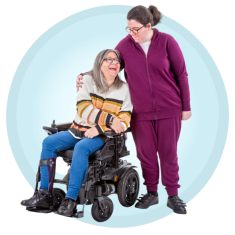
- Family member or friend

Some treatments can be done at home.

For some treatments you may need to go to hospital.
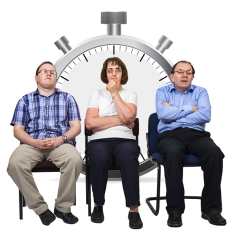
If you need to stay in hospital for your mental health you may be
- A voluntary patient
- An involuntary patient

You are a voluntary patient if you decide to go to hospital for mental health treatment.

If you are a voluntary patient you or your guardian can
- Choose what type of treatment you want
- Ask to have a different treatment
- Ask to stop treatment

For more information about
- Being a voluntary patient go to https://www.3dn.unsw.edu.au/
sites/default/files/documents/
3DN_MHA_Voluntary_ERv1.pdf
- Your rights as a voluntary patient go to https://www.3dn.unsw.edu.au/
sites/default/files/documents/
3DN_Rights_Voluntary_ERv1.pdf
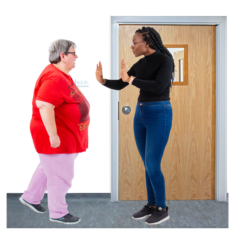
If you are an involuntary patient you must stay in hospital for mental health treatment until you are well enough to go home.
It is not your choice when you can leave.

If you are an involuntary patient you can be given treatment even if you do not want it.

For more information about
- Being an involuntary patient go to https://www.3dn.unsw.edu.au/
sites/default/files/documents/
3DN_MHA_Involuntary_ERv1.pdf
- Your rights as an involuntary patient go to https://www.3dn.unsw.edu.au/
sites/default/files/documents/
3DN_Rights_Involuntary_ERv1.pdf
How to know what will work best for you

Discuss with your GP or mental health worker about what treatment may work best for you.
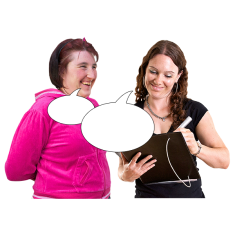
Ask someone you trust what they think.

You may have tried a certain treatment before.
Try to remember if it helped you or not.

Sometimes you will not know how a treatment will work for you until you try it.

It is OK to try a treatment for a while then see how it is working for you.

If it is not working you can ask your GP or mental health workers to try something else.

There is more information on the next page.
Click Next page below.